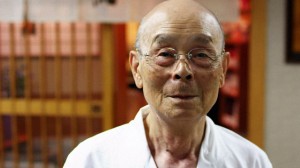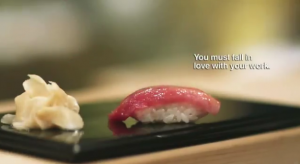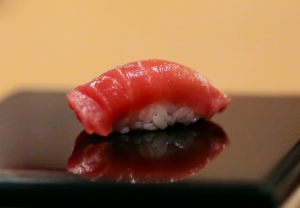I am sitting in a lecture about sentence structure and style — how to connect fragments to gain momentum, build suspense, create meaning. This is part of my MFA program in creative writing. Twice a year, all the students and faculty gather at a resort in Rancho Mirage for intense workshops, lectures and meetings. It’s a surreal and unbelievably lovely landscape for school — swimming pools, lush citrus trees, conference rooms with silver pitchers of ice water on every table.
Here I have been writing like crazy. I am turning inward and immersing myself in my own transition. My body is longing to conceive something. A story, a book, maybe a child.
It is halfway through this lecture that my phone’s calendar sends me an alert: Today I am ovulating. For the first time in our lives, my husband and I have moved beyond the discussion phase, and we are actively trying to start a family. I downloaded an app to my phone that alerts me to my most fertile days, and today is one of them. I wonder if I am already pregnant.
One moment later I receive another notice on my phone, this one a breaking news alert: Police respond to reports of shooting at elementary school, several dead. More reports follow, and I learn the incident at a Newtown, Conn. school claims 26 victims, 20 of them children.
Two messages, both within one minute of each other. One is about life, one is about death, and the combination makes me wonder what I’m doing here. Not just in this room, but in a time and a culture with such severe juxtapositions. I wonder how a single minute is big enough to accommodate both longing for a baby and grieving lost children.
I also wonder about my husband and our decision. We want to introduce a life into this world — a world that can be tricky, senseless and often cruel. Yes, I know there is immense beauty on this earth. I’ve traveled a lot, and I’ve seen it with my own eyes. But I also know that there is a brutality and wildness that can never be tamed, no matter how hard we all try.
I think about the balloon release my class had when I was in the third grade. Each student wrote letters, asking for pen pals. Our teacher helped us attach our messages, wrapped in plastic, to the string. All of us stood on the playground, releasing our balloons into the great big sky all at once. As much as I wanted my balloon to find a home somewhere else and go someplace I had never been, I wanted it back as soon as it floated beyond my reach. It was too fragile, too special. And it turns out my instincts were correct — my balloon ended up tangled in some telephone wires just outside Huber Heights, Ohio.
Are my husband and I selfish to want this? How in the hell can we create something so fragile, so special only to release it into a chaotic and unstable world? What’s the sense in that? Would you let the balloon fly away if you knew it was so easy to pop?
I am sad, and I am ripe, and I don’t know if my questions have any right answers.
I text a friend, a fellow student, and say I am having trouble processing the shooting tragedy. He replies: “The world is so complicated. Dark on one side, sunlight on the other.” He attaches a funny story along with it, just something that makes him laugh. It is his birthday, and he is trying to smile even though the darkness seems overwhelming.
My friend and I attend the next lecture together. We are here, putting fragments together, trying to construct a story that makes sense.




